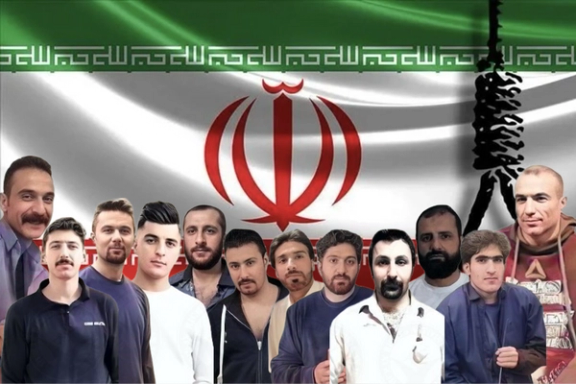Iranian Student Unions Decry Death Sentences Of Protesters

Seventeen student groups across Iran have issued a joint statement against death sentences for several political prisoners, labeling them "state-sponsored murder."

Seventeen student groups across Iran have issued a joint statement against death sentences for several political prisoners, labeling them "state-sponsored murder."
In a joint statement released Thursday, the student activists asserted their refusal to remain silent under any circumstances, stating, "We will not tolerate executions, and we will obliterate the executioner government."
The signatories, who identified themselves as "fighters and revolutionaries of Women, Life, Freedom,” also urged nationwide protest rallies against the recent surge in executions throughout the country.
A recent report by the Norway-based Iran Human Rights (IHRNGO) group disclosed a shocking 33-percent increase in executions in Iran last year, with at least 791 individuals put to death. Over one-fifth of those executed belonged to the predominantly Sunni Baluch community, indicating a disproportionate impact on ethnic minorities. According to the US-based Human Rights Activists News Agency (HRANA), at least 12 prisoners in Iran charged with political or security-related offenses now face death sentences.
The student unions further vowed support for people currently facing execution, including Reza (Gholamreza) Rasaei, Mojahed (Abbas) Kourkour, Mansour Dahmardeh, Farshid Hossein-Zehi, Vafa Azarbar, Mohammad Faramarzi, Pejman Fatehi, and Mohsen Mazloum, eight political prisoners condemned to death by Iran's Supreme Court.
Among them, Mohsen Mazloum, Pejman Fatehi, Vafa Azarbar, and Hojir Faramarzi are Kurdish political prisoners sentenced to death by Branch 26 of the Tehran Revolutionary Court.
Kourkour is among the detainees of the nationwide uprising in Izeh, arrested on December 20, 2022 during an armed attack by security and law enforcement forces on a village near Izeh. The judiciary identifies him as the "main suspect" in the killing of 10-year-old Kian Pirfalak, but Kian's family steadfastly maintains that the perpetrators were government forces. The situation has raised international concern over the due process and human rights in Iran.
Rasaei faces accusations of "murder" in connection with the death of Nader Beirami, the head of intelligence in Sanandaj, during a protest in the city on November 17, 2022. According to the human rights group Amnesty International, Rasaei was subjected to an "unfair trial" on October 7 in Kermanshah province with his forced confessions under torture. His mother, Azardokht Haqjouyan has said her son's extensive 1,500-page case file had been reviewed within a week.
Rasaei hails from Iran's marginalized Kurdish and Yarsan ethnic and religious minorities. The Yarsan faith, also known as Ahl-e Haqq, is among the oldest Middle Eastern religious traditions, with an estimated three million followers in Iran, primarily in the western Kurdish regions, and an additional 120,000 to 150,000 in Iraq, known as Kaka'i. Yarsan adherents have encountered various challenges, including difficulties in registering their children as Yarsan at birth, restrictions on constructing places of worship, and the constant fear of persecution for printing their holy book.
According to the signatories of the statement, "The government, through creating fear and terror by issuing and implementing execution orders, is seeking an escape from the escalating political, cultural, economic, and international crises." They claimed that the Islamic Republic believes that by executing protesters and dissidents, it can intimidate society, suppress the revolution, and quell protests. The student organizations, however, denounced such a belief as a delusion and emphasized their commitment to the destruction of the Islamic Republic.
Tweet unavailable